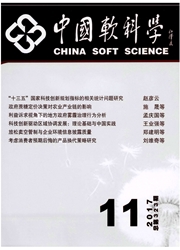

 中文摘要:
中文摘要:
本文利用中国上市公司2005—2010年的数据,考察银行授信是否降低了金融危机中企业的预防性现金储备。研究发现,获得银行授信的企业在危机期间现金储备的增幅更小,这表明银行授信发挥了流动性保障作用。但是我国特殊的经济制度环境也影响着这种流动性保障作用的有效发挥:(1)相较于国有银行,源自非国有银行的银行授信为企业提供了更有效的流动性保障;(2)银行授信的流动性保障取决于银企关系的强弱;(3)民营企业比国有企业更依赖银行的流动性保障。进一步研究发现,银行授信的流动性保障能够改善企业在危机中的经营业绩。文章结论表明,我国银行体系在帮助企业部门应对金融风险时存在不足,政府应该尽量剥离国有银行的"政治性"贷款,让国有银行为企业提供更有效的流动性保障。
 英文摘要:
英文摘要:
Based on the data of China's public non-financial firms from 2005 to 2010,the paper investigates whether bank lines of credit lowers a firm's precautionary cash holding in the 2008 global financial crisis. The study finds that the cash holding increase of firms with credit lines is lower than firms without credit lines during the crisis period,indicating that bank lines of credit played a role of liquidity insurer. However,China's special economic environment affects the effective use of the liquidity insurance:( 1) compared to state-owned banks( SOB),credit lines offered by non-state-owned banks( NSOB) provides more effective liquidity insurance for firms.( 2) The closer the bankenterprise relationship,the more effective liquidity insurance will be provided.( 3) Private enterprises are more dependent on the insurance offered by banks. The further study shows that the liquidity insurance could help firms to improve operating performance in the crisis. We conclude that China's banking system has inadequacies at helping firms to cope with liquidity crisis,thus the government should try to alleviate SOB's political loans so that SOB have enough resources to provide liquidity insurance to valuable firms.
 同期刊论文项目
同期刊论文项目
 同项目期刊论文
同项目期刊论文
 期刊信息
期刊信息
